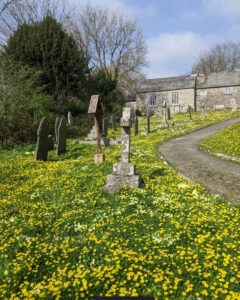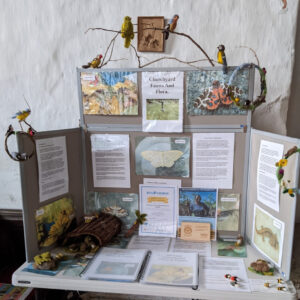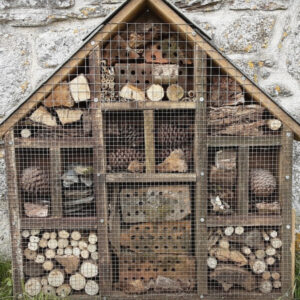Becoming a GOLD eco church – tips from a Church Creation Care Champion
Creationtide is the annual event in the Church of England’s calendar to celebrate God’s creation and renew a promise to look after our planet.
Many churches hold special services to mark the event, which runs from September 1 to October 4.
In this series we are highlighting some of the ways people in the Diocese of Truro care for creation.
Blisland Church (St Protus and St Hyacinth) has been a Gold Eco Church for just over a year – thanks to the hard work of its church Creation Care Champion and team.
 The journey to A Rocha UK’s Eco Church gold status started three years ago with the appointment of Ann Sutton as Creation Care Champion. She and her team have been making changes in and around the building to help the environment ever since.
The journey to A Rocha UK’s Eco Church gold status started three years ago with the appointment of Ann Sutton as Creation Care Champion. She and her team have been making changes in and around the building to help the environment ever since.
They’ve encouraged wildflowers, installed bird, bat and hedgehog boxes, used outside solar lights and inside low LED lighting – just to mention a few things. They also have compost bins, water butts and a special children’s area.
Ann said: “We were very happy to get the gold award but the step between the silver, which we were awarded previously, and the gold award is quite a big one.
“We had a three-hour site visit and face-to-face interview. This was a little nerve-racking and we had to put in a lot of work and effort to attain the required level, but it was very good fun.”
Ann said working towards, and then maintaining, the gold award encouraged them to work with the congregation and the wider village community, as well as the numerous visitors to the church, to think about the environment both locally and globally.
Since receiving gold, their efforts to keep helping the environment continue as they watch their carbon footprint and keep up their Fairtrade status.
Ann said: “We have also started a scheme to try to persuade people to plant bulbs on their loved ones’ graves rather than putting faux flowers on them. We are hoping to be able to provide bulbs, if needed, in the future.”
Other plans in the pipeline include creating a small mammal and bumblebee wall, by incorporating old plant pots into the retaining wall between the old and new churchyard as it is rebuilt and creating a native hedge.
Ann’s Tips:
|


